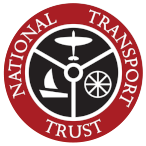Ferryhill Turntable.
This project is to bring the 70 ft Ransomes and Rapier Turntable at Ferryhill, Aberdeen back into working order during 2018 and is by the Ferryhill Railway Heritage Trust.
This Group is undertaking this project because their site retains a main line Network Rail connection and thus on restoration, will be able to service/turn visiting steam locomotives on charters. The income from this project will provide the Ferryhill Railway Heritage Trust with a valuable source of revenue in the future as at present such charter trains have to continue to Inverness to be turned.
The Ferryhill Railway Heritage Trust had significant offers in grant funding from The Railway Heritage Trust and Historic Environment Scotland. These Grants are all paid in instalments with the final grant being paid on completion of the project. The Loan is to allow the Trust to pay the contractors who are already undertaking the work on the turntable, prior to the Grant funds being received.
More information on the Ferryhill Railway Heritage Trust can be found on their web site www.frht.org.uk
“The TT loan was of significant assistance in advancing the project!”, a quote from David Clucas, Secretary and Treasurer.



Baby Deltic Project
This project took a loan from the Trust in 2011 to cover a funding gap at the start of the conversion work.
The Group owns the the sole remaining Napier Deltic T9-29 engine and generator set. Having returned this power unit to a fully-operational condition and installed it in a rail van to demonstrate the concept, the group acquired a Class 37 locomotive which, because of design similarities, was capable of being converted into a replica EE Co Type 2 (Class 23) “Baby Deltic” locomotive. This work is a massive undertaking and broadly comprises a reduction in length of main underframe and body by some 1300mm, shortening of the noses by 300mm as well as the replacement of the body superstructure between the cabs in addition to modifications made to the control and braking systems.
The loan was for a total of £5,000 over a 5 year period on a reducing balance basis.
The Locomotive conversion is progressing well and can be seen at the Barrow Hill Roundhouse site.
More can be seen on the web site http://www.thebabydelticproject.co.uk/
Simon Hartshorne says "The Transport Trust loan provided a useful boost to funding at a generous repayment rate when we started the re-creation of the locomotive. It enabled us to undertake work based on costs rather than having to wait for income from ad hoc donations. We are extremely grateful to the Trust for the loan and are happy to be associated with their good work.”



1903 NER (Petrol) Electric Auto car Trust
This group is restoring the above railcar using an original body and a new build engine.
This was the world’s first use of an interna
l combustion engine in a passenger carrying rail vehicle. At the time the petrol
engine was in its infancy and reliable diesel engines were not developed until the mid-1930s.
Luckily, the body of 3170 was sold to a North Yorkshire landowner and made into a holiday home at Keldholme near Kirkbymoorside on the North Yorkshire Moors. Fitted with a tin roof and veranda it was well protected from the weather and survived there until September 2003 when it was sold to carriage restorer Stephen Middleton who moved it to the Embsay and Bolton Abbey Steam Railway.
The Autocar trust sought and obtained significant support from the Heritage lottery fund for the restoration of the Autocar and its unpowered coach.
In 2014 the Trust were approached to assist the project via a bringing loan to cover payment timescales for the HLF Grant. This loan was agreed and ended in March 2016, enabling the project to maintain its momentum and meet its deadlines. More can be seen on the web site http://electricautocar.co.uk/


